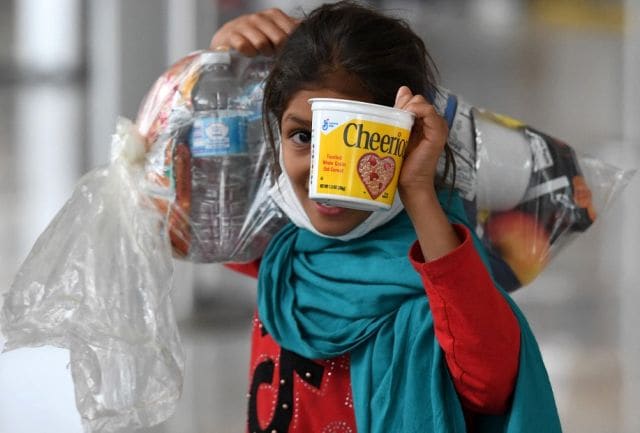Empowering caregivers of Spinal Muscular Atrophy patients: The need for early intervention and support

SMA can be tough on children and caregivers. AFP
Spinal Muscular Atrophy (SMA) is a life-threatening, rare, progressive, genetic disorder that affects the motor neurons in the spinal cord, resulting in muscle weakness and progressive loss of movement. Without timely intervention, most children with SMA do not survive beyond their second birthday and some remain confined to wheelchairs. However, it is not just the patients, the family and the caregiver network too undergo several stressful events and have a journey filled with financial and emotional struggles.
Challenges faced by caregivers
The path of caregivers for children with Spinal Muscular Atrophy (SMA) is a challenging one, fraught with physical, emotional, and monetary hardships along with social stigma, inaccessibility, and lack of inclusion faced by the children with SMA in educational institutes and other social circles. Within the realm of caring for children with Spinal Muscular Atrophy (SMA), caregivers face numerous challenges stemming from a lack of awareness and knowledge about the condition. Many parents are oblivious to the existence of SMA or the importance of antenatal and prenatal screening. This lack of understanding plunges families into emotional turmoil upon receiving the diagnosis. Caregiving is extremely taxing on parents in terms of time, effort and learning medical terminologies and care.
Potential long-term solutions
Early diagnosis is pivotal in preventing lifelong regret for parents. Discovering SMA at a later stage often leads to feelings of anguish and a sense of missed opportunities. The realization that their child could have had a better and more normal life if prenatal or early screening had been conducted can be a heavy burden to bear. Therefore, emphasizing the need for early diagnosis as a preventive measure becomes imperative. By implementing comprehensive screening programs, families can be spared the agony of “what-ifs” and instead focus on providing the best possible care for their children.
A key solution lies in the implementation of newborn screening (NBS) programs for high-risk infants, which can play a crucial role in identifying SMA at its earliest stages and mitigating the potential distress that caregivers may encounter later. One of the potential long-term solutions is carrier screening and prevention however, since, that is not possible in India, hence newborn screening is the closest solution.
Importance of early intervention for caregivers
The significance of NBS goes beyond emotional well-being; it also serves as a preventative measure against the financial and emotional difficulties that may arise for caregivers. Early intervention through NBS of high-risk infants allows for timely medical interventions and access to appropriate resources, ultimately reducing the financial burden on families. For caregivers, the emotional and financial strains can be overwhelming. Many are forced to make difficult decisions, such as giving up their careers to provide full-time care for their child. This sacrifice not only affects their financial stability but also takes a toll on their mental health with several parents reporting feelings of depression and anxiety.
With early diagnosis, caregivers can also plan and prepare for the long-term care needs of their child, preventing unexpected and overwhelming expenses down the road. This preventive approach can alleviate stress and provide a more stable foundation for the entire family.
Raising awareness about the importance of early intervention is crucial to empower parents with knowledge and prevent emotional turmoil. Early diagnosis and early access to treatment can save and improve the life of not just the patients but also caregivers. To bring about lasting change, healthcare providers, policymakers, and communities must work together to prioritize early detection and holistic care. By embracing a shift in perspective and offering unwavering support to caregivers, we can create a brighter future for SMA patients and their families, where early intervention, comprehensive care, and caregiver empowerment become the norm.
The author is co-founder, CureSMA. Views expressed in the above piece are personal and solely that of the author. They do not necessarily reflect Firstpost’s views.
Read all the Latest News, Trending News, Cricket News, Bollywood News,
India News and Entertainment News here. Follow us on Facebook, Twitter and Instagram.
For all the latest health News Click Here

